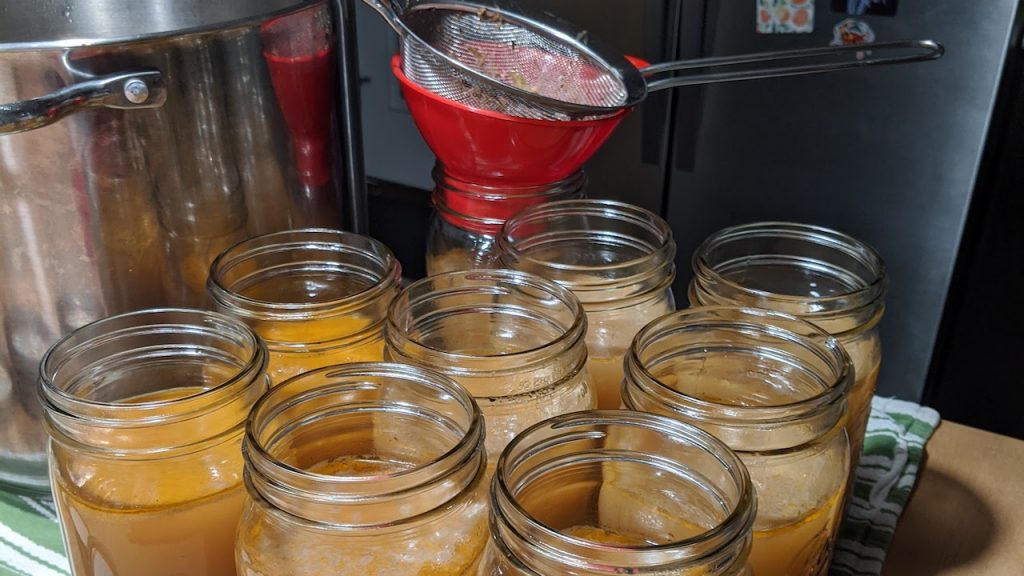Make Homemade Broth, And Other Nutritionist Tips During COVID-19
Wayne State nutritionist Diane Cress tells CultureShift how to shop smart during the COVID-19 pandemic.

Some local groceries have been picked thin in the wake of thousands of Metro Detroiters stocking up in preparation for quarantine.
But instead of frozen and canned foods, one Wayne State nutritionist says creating your own soups and grain-based dishes is a healthier way to feed yourself and your family during this crisis.
“You don’t want to be throwing anything away right now. You want to maximize what you have.” — Diane Cress, nutritionist
Diane Cress says, before you go shopping again, pay attention to what can still be used at home.
“Get your nutrients from food and then you get the right doses,” says Cress. “If you get them from supplements, things are imbalanced. Food is cheaper and tastes better.”
In her pantry, she always tries to stock up on:
- Grains: Rice, pasta, quinoa, couscous, lentils, oats
- Dried goods: Dried goods less expensive, tend to store better, last longer and expand to meet a families needs. Dried beans and dried peas are great, but their preserved counterparts also work.
- Frozen goods: Store-brand frozen vegetables make for a great value.
- Protein: Nuts, seeds, almonds, walnuts
CultureShift’s Amanda LeClaire spoke with Diane Cress about what to buy, store and eat during a pandemic.
Click on the player above to hear advice from nutritionist Diane Cress, and read her tips below.
TIPS
Choose Cheese over Milk
Cress says target the things to go bad faster, like certain types of dairy and produce. Then, when shopping, prioritize towards shelf-life and usability.
“Milk goes bad within a fairly short amount of time, but things like cheese last longer.”
She says you can use dairy products to make soup, and then freeze it to extend the ingredients.
Buy the Types of Produce that Last the Longest
“This is kind of a cruder explanation, but things that are harder and drier last longer.”
Look for: Carrots, beets, potatos, onions, cabbage.
You can also put them in a soup, or cook them and freeze them.
“You don’t want to be throwing anything away right now,” Cress says. “You want to maximize what you have.”
Cook Your Own Broth
Take butter or oil and cook all your vegetables.
“Just cooking them long and slow,” Cress says. “Everything can contribute to a broth.”
Here is a recommended recipe for homemade vegetable broth.
Support the news you love.
Here at WDET, we maintain our journalistic integrity through independent support from readers like you. Because you value WDET as your source of news, music, and conversation, please make a gift today.
